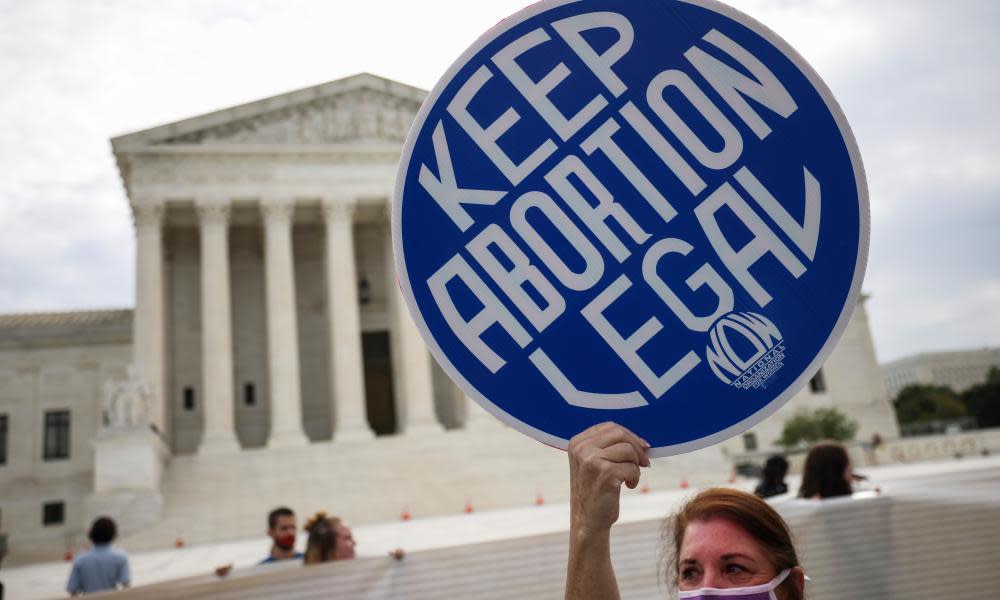Biden urges supreme court to block Texas’ near-total abortion ban

- Oops!Something went wrong.Please try again later.
The Biden administration has asked the supreme court to block Texas’ extreme abortion ban as a battle over its constitutionality plays out in the courts.
The Texas law, which has halted most abortions in the state, defies the supreme court’s major decisions on abortion rights “by banning abortion long before viability – indeed, before many women even realize they are pregnant”, the US justice department wrote in its plea to the court.
“The question now is whether Texas’ nullification of this court’s precedents should be allowed to continue while the courts consider the United States’ suit. As the district court recognized, it should not,” the justice department wrote.
Related: Biden administration sues Texas over ‘clearly unconstitutional’ abortion ban
The law has been in effect since September, aside from a district court-ordered pause that lasted just 48 hours, and bans abortions once cardiac activity is detected, usually around six weeks.
The administration also took the unusual step of telling the justices they could grant the Texas law full review and decide its fate this term, which already includes a significant case about the future of abortion rights in the US.
No court has yet reached a decision on the constitutionality of the Texas law, and the supreme court rarely grants such requests.
The administration said the court could short-circuit the usual process and rule on the law’s constitutionality this term, even though lower courts have yet to do so.
The justices have done this only a handful of times in recent decades, the last occasion being a 2019 dispute over the Trump administration’s ultimately failed effort to include a citizenship question on the 2020 census. In that case, a deadline for finalizing the census was fast approaching.
In this case, the administration said, Texas’ attempt to evade federal court review of its law and the possibility that other states could adopt similar measures justify the court’s early involvement.
The high court ordered Texas to respond by midday Thursday.
White House press secretary Jen Psaki said at Monday’s news briefing that Joe Biden would protect abortion rights, and that the justice department would lead efforts to ensure that people have “access to fundamental rights that they have to protect their own health”.
It’s not clear whether the administration will prevail at a supreme court with a conservative majority that has been fortified by three appointees of Donald Trump. The supreme court has already agreed to hear a challenge to abortion rights in a Dobbs v Jackson Women’s Health Organization, a case from Mississippi that is considered the most direct threat to women’s reproductive rights in nearly five decades.
While courts have blocked other state laws effectively banning abortion before a fetus can survive outside the womb, roughly about 24 weeks, the Texas law has so far avoided a similar fate because of its unique structure, which leaves enforcement up to private citizens, rather than state officials. Anyone who brings a successful lawsuit against an abortion provider for violating the law is entitled to claim at least $10,000 in damages.
The court has already declined once to block the law from taking effect, acknowledging in an unsigned order that there were “serious questions regarding the constitutionality of the Texas law” but also “complex and novel” procedural questions about whom to sue and whether federal courts had the power to stop the law from being enforced.
In a dissenting opinion after the 5-4 vote, chief justice John Roberts wrote that he would have put the “unprecedented” law on hold so that court could consider “whether a state can avoid responsibility for its laws” by handing off enforcement. The court’s three liberal justices also dissented.

